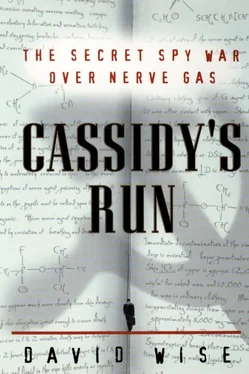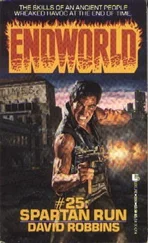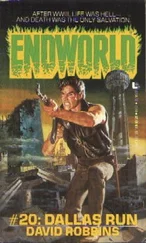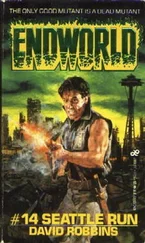According to Oswald’s son, Robert, Edmund’s mother, Anna, was a Catholic who converted to Judaism when she married his father, Wilhelm. “Wilhelm was abusive and gambled away his wife’s small business. Anna and Wilhelm tried to enter Switzerland at some point but were turned back. I’m not sure if they were stopped at the border or got in and were turned back and went to occupied France. We found their names on the train list, the trains that went to Auschwitz.”
Edmund’s brother Oswald was also sent to the refugee camp in Switzerland at Schönengrund, where he met his future wife, Gina. A Swiss guard, later honored in Israel for his actions, forged documents and saved Gina and her entire family, as well as other refugees who lacked required papers and would otherwise have been shipped back to Germany and the death camps. “After the war,” Robert recalled, “Edmund had a complete breakdown and was institutionalized in Austria, for up to a year. I visited him in 1964. He worked in the Austrian equivalent of our social security. That was the first time I ever met him. It was an overwhelming experience, he looked so much like my dad, it was stunning.”
Sponsored by his brother, on April 16, 1968, Edmund Freundlich was admitted to the United States on an immigrant visa, after swearing he would not engage in “espionage… or in other activities subversive to the national security.” On his visa application, he listed his address as Kirchberggasse 24, Vienna, and his occupation as office worker. His decision to leave Austria for America puzzled Robert’s wife, Jill. “For many years he didn’t want to come here,” she said. “Then, suddenly, he wanted to come.” What his family did not know, of course, was that he had been recruited by Soviet intelligence and was to work as a spy in New York.
Jill was fond of Uncle Edmund. “He had almost a childlike quality, he gave very thoughtful, wonderful presents to the children. He was good-looking, tall, he had a poet’s face, sandy hair. He was almost six feet tall. He lived in Kingsbridge Terrace, in a very poor neighborhood, mainly Hispanic. He lived in a hovel. His apartment was small and dirty. He kept every piece of paper, newspapers piled floor to ceiling.
“He never married. He never brought a date to family gatherings. He did not seem interested in material things. He was into natural things and holistic medicine. He was a lovely, sweet, genuinely nice person. A good-hearted person. If you didn’t get onto politics, anything controversial, he was lovely.
“He had a healthy distrust of the government and was pro-Russia. He hated the way the Americans treated the Indians, pushed them off their land and was still treating them badly. He talked openly about liking the Russians. There would be political debates. Robert would argue with him.”
Robert Freundlich confirmed that he got into political arguments with his uncle. “He was not so much pro-Russian as anti-U.S. A highly neurotic man. It was extremely difficult to have rational discussions with him.”
A year after Edmund arrived in the United States, he went to work at Pergamon Press, in Elmsford, New York, near Tarrytown, at a salary of $13,000 a year. He commuted by bus each weekday.
This may not have been a random choice of an employer. The man who owned Pergamon Press, Robert Maxwell, born Ian Ludwik Hoch in Czechoslovakia, also fled the Nazis in 1939 and built a publishing empire in Britain and the United States, acquiring the Mirror Group in London, the New York Daily News, and the American publishing company Macmillan, in addition to Pergamon. Maxwell was close to the Soviets, and a number of his executives at Pergamon were also from Eastern Europe. Whether Maxwell had any knowledge that he had a Russian spy on his payroll is unknown, but, whether by chance or not, Freundlich obtained work with the one publisher in the United States who maintained friendly relations with the Soviets during the cold war. [4] Maxwell’s financial empire was collapsing at the time of his mysterious death in November 1991. Maxwell, sixty-eight, disappeared during the night from his hundred-foot yacht in the Atlantic, near the Canary Islands. His body was found hours later, floating in the sea. Although Spanish authorities said Maxwell had died of a heart attack, his death was ruled a suicide by Lloyd’s of London, which refused to pay his insurance. To support its conclusion, Lloyd’s noted that Maxwell had asked his private jet to circle the yacht, the Lady Ghislaine, on November 4, the last full day of his life, as though in a final salute.
Laszlo Straka was president of the publishing house in 1971, when Cassidy was given his microdot instructions. He said Maxwell started the press in the late 1950s as a subsidiary of the British parent company of the same name. Born in Hungary, Straka spent his whole career working for the Maxwell interests.
“We were a scientific-technical publisher, and the American branch also published some journals,” Straka recalled. “Edmund Freundlich was a low-level employee. He actually worked for a separate company, also headquartered at Pergamon, with the same phone number, called Maxwell Scientific International, which bought and sold back issues of scientific journals. It was run by Dr. Edward Gray, originally Ed Grunberg, a Romanian Jew. It was Dr. Gray, now dead, who hired Edmund Freundlich.
“He worked as a cataloguer of the scientific journals. So he was in the records ends of things. He always carried around his lunch in a little brown bag. I knew he was from Europe. A quiet sort of man, kept to himself.”
Straka confirmed that Maxwell had strong links to the Russians. “The English Pergamon did a fair amount of Soviet translations, and Maxwell considered himself a sort of ambassador to the Soviets and visited Russia frequently. We distributed Soviet scientific journals in the U.S.” [5] On November 14, 1991, shortly after Maxwell’s death, The Times of London reported that the British Foreign Office was investigating allegations that the Soviet Communist Party had aided Pergamon Press financially by placing it in the category of “friendly firms” that were given priority in settling Soviet debts.
Robert Miranda, a former vice president of Pergamon, also remembered Freundlich. “He was a sort of a recluse type of a guy, very smart but a loner. He collected all kinds of material, he was a continuous collector of junk. I wondered if it had to do with his years in the camps.”
Lori Miranda, Robert Miranda’s daughter, worked directly with Freundlich. “I worked for the microfilm department, and Eddie worked with back issues. We all sat in the same room. The thing I remember most about him, he was a pack rat. The microfilm used to come in little square boxes. Every once in a while I gave him the boxes, and he was very excited. Offbeat, but a nice guy.
“One time he drew a picture of a thumb and put it on the wall and wrote, ‘Press here.’ People would come over and press it. It was a joke. Eddie enjoyed that.”
Freundlich was placed under surveillance by the FBI, and his apartment was wiretapped. His own brother had trouble feigning interest in Edmund’s life. The FBI listened to Edmund on the telephone, talking on and on to his brother, and Oswald would start to snore.
Donald F. Lord, a former FBI agent and one of many assigned to watch IXORA, said the bureau discreetly moved into Freundlich’s apartment house. “We had an apartment in the same building. He was on the ground floor. We were on the third floor. But we could see him from the window when he went out and walked across the courtyard. It was frustrating. He didn’t do anything. He would just ride the subway or walk around the Bronx.”
Charles T. Weis, who headed the bureau’s GRU squad in New York, remembered the lookout post because he had lugged a spare bedroom set from his house and wrestled it into the Bronx apartment with the help of another FBI agent.
Читать дальше












